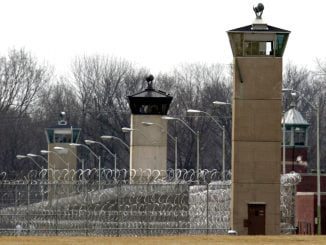RALEIGH — North Carolina’s highest court began weighing a claim Monday by six inmates on death row who say they are there because of racial discrimination in jury selection — and who argue they are still entitled to protections under a law that was taken off the books.
The state Supreme Court began hearing arguments in the cases of four inmates who briefly were resentenced to life without parole when legislators approved the Racial Justice Act in 2009. Legislators repealed the law in 2013. Justices also heard from attorneys for two other death row prisoners whose Racial Justice Act claims weren’t decided before the law’s repeal.
“Weighing on this court’s shoulders is hundreds of years of racial discrimination against African Americans,” attorney Henderson Hill told the justices.
The Supreme Court — which has seven justices, six of whom are Democrats — typically doesn’t determine facts, but Hill suggested that perhaps it should. Prosecutors get so many opportunities to strike potential jurors from duty that “simple math means that black folks are going to be disenfranchised from service on juries,” he said. “With all that history, how does the court respond?”
As Hill was concluding his arguments focused on racial discrimination in jury selection in North Carolina, Chief Justice Cheri Beasley said: “It sounds like while we are here in the context of these cases, it sounds like … you’re addressing something greater and possibly asking this court to address something greater.”
Another defense attorney, Dan Shatz, argued that the justices should consider the 1866 Amnesty Act that provided blanket protection to Confederate soldiers accused of crimes. The court found that even after the law was repealed, it still provided amnesty to an officer who led a civilian massacre.
Under the RJA, condemned men and women could seek a life sentence without parole by using statistics to show that race tainted their trials. Of the 142 people on North Carolina’s death row, 36% are white.
The four cases where the prisoners were briefly resentenced all come from Cumberland County, including Hill’s client, Christina Walters, a Native American who is one of three women on North Carolina’s death row. The justices were scheduled to hear five of the cases Monday with one scheduled for Tuesday.
Senior Deputy Attorney General Danielle Elder argued that justices’ decision is limited and narrow — whether a lower court judge was correct to rule that the RJA, once appealed, no longer applied to Walters who was then returned to death row.
“What is properly before this court is a review of that court’s legal conclusion,” Elder said.
Elder also argued that the defendants still retain the right to a trial free of prejudicial error that could cause harm to the defendant. The repeal of the RJA did not affect the commitment of the nation “to the eradication of racial discrimination, which is odious in all respects, but especially in the administration of justice,” she said.



